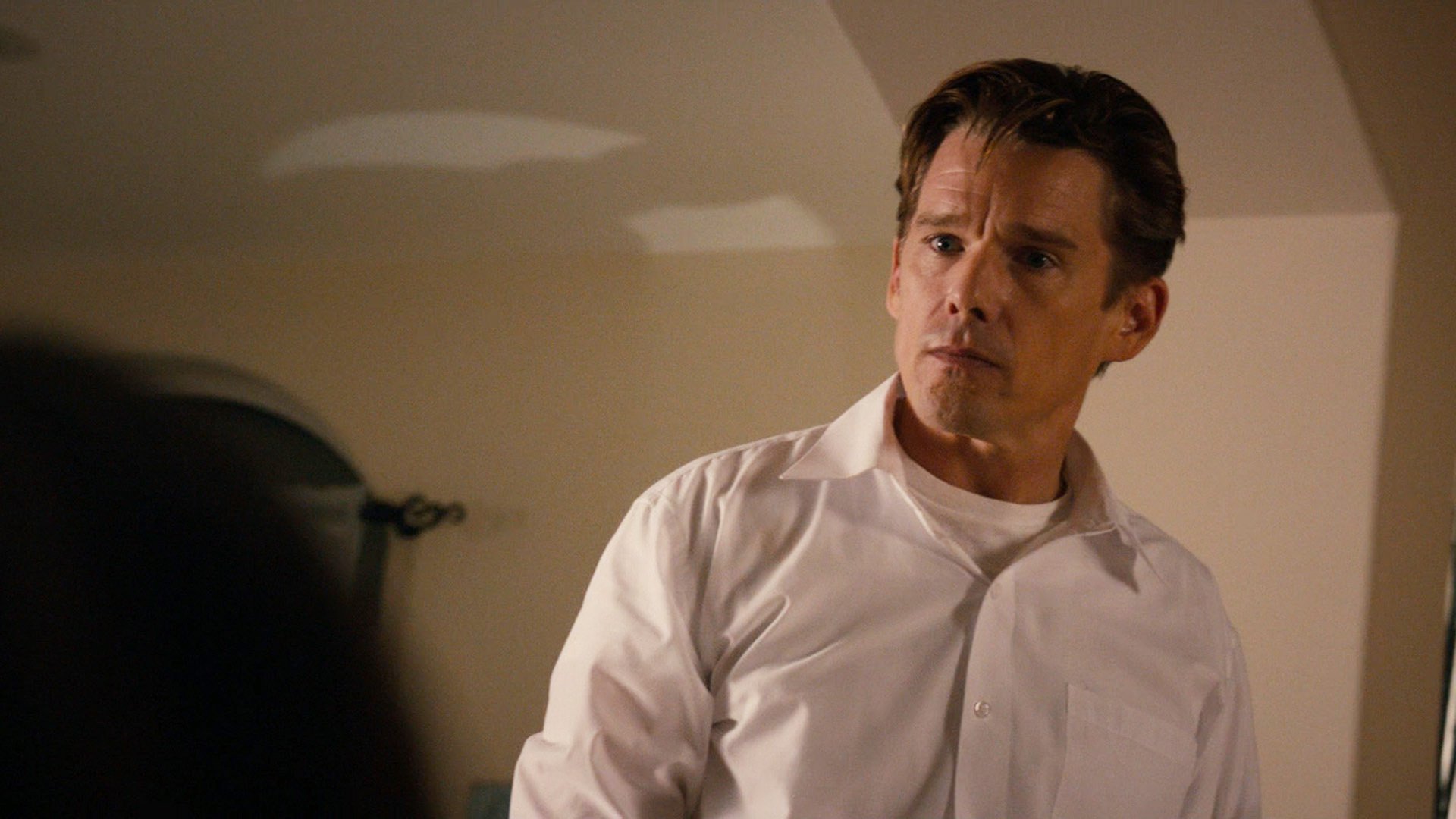'The Purge'
The Purge is part horror, part action thriller and part dystopian social commentary. The Frankenstein-like assembly of its inspirations means that a lot -- maybe a little bit too much -- is packed in to what might have otherwise been a taut, straightforward, 85-minute edge-of-your-seat gorefest.
To criticize it for this fact seems to miss two very obvious facts. First, the themes it touches upon could not be fully unpacked even if the film was 10 hours long, but that doesn't mean they aren't worth touching upon at all. Second, even with a few half-baked concepts, it succeeds in being absolutely chilling, the sensation that, in this genre, is an even greater indicator of success than pure fright.
A couple of paragraphs and some grainy but stomach-churning security camera footage lay out the film's premise. It is 2022 and crime in America has plummeted. The tradeoff for that good life is that one night a year crime -- even murder -- is legal. The ritual is designed to get the country's pent-up rage out in one fell swoop. The reality of it is brutal and difficult to watch.
Enter Ethan Hawke, the patriarch of the Sandin family who is headed home on the eve of The Purge to his wife, played by Lena Headey, his teenaged daughter, played by Adelaide Kane, and his odd, brainy son, played by Max Burkholder. The Sandins live in suburban paradise. The tendrils of ugliness that encompass The Purge are unlikely to reach into their gated community, and even if it does, the security system that Hawke's James sells for a living and has installed in their house as well as all of his neighbors is supposed to keep them protected.
The Purge tends to target society's weakest members and there are none to be found in this neighborhood.
But one does find his way to their doorstep anyway, and the hermetic seal that is supposed to see them through the night in a worst-case scenario is broken by the youngest Sandin, Charlie (Burkholder). He offers an injured homeless man fleeing from Purgers (?) shelter, setting up an evening of impossible choices and terror for him and his family.
The creeps pursuing the man zero in on his apparent sanctuary and then give the Sandins an ultimatum -- turn over the man they wish to purge or face being purged themselves. The group -- all young and white, some male, some female -- wear masks with the exception of their leader, Rhys Wakefield, whose sinister smile and deliberate, menacing soliloquys (all to the Sandins' security cameras) make him eminently easy to despise.
Things are simple for him. The Purge is his right and the people he and his pals target are drains on society anyway. If you're looking for the ugliest sentiments of the extreme right in this country (only a little more extreme) encapsulated in one character, look no further than Wakefield's chilling character.
But inside the Sandin compound, the proceedings are impossibly complex, Hawke and Heady's characters first trying to capture the man their son offered help to, then waffling as the terror their children are feeling shifts from outside the house to in it.
The Purge is a bit heavy-handed in its challenge to conventional wisdom, particularly the idea that violence is innate, that it has a cleansing power. But it's not obnoxiously so, and there are some nice subtle touches to it. Though you pity and pull for the Sandins, the film does a nice job driving home that the patriarch, James, is responsible for and has profited off of the twisted system that brings unspeakable violence to their doorstep.
Though The Purge is presented in the wrapping of a slasher flick, it is sure to make you think -- a quality of which horror fans should be appreciative.

